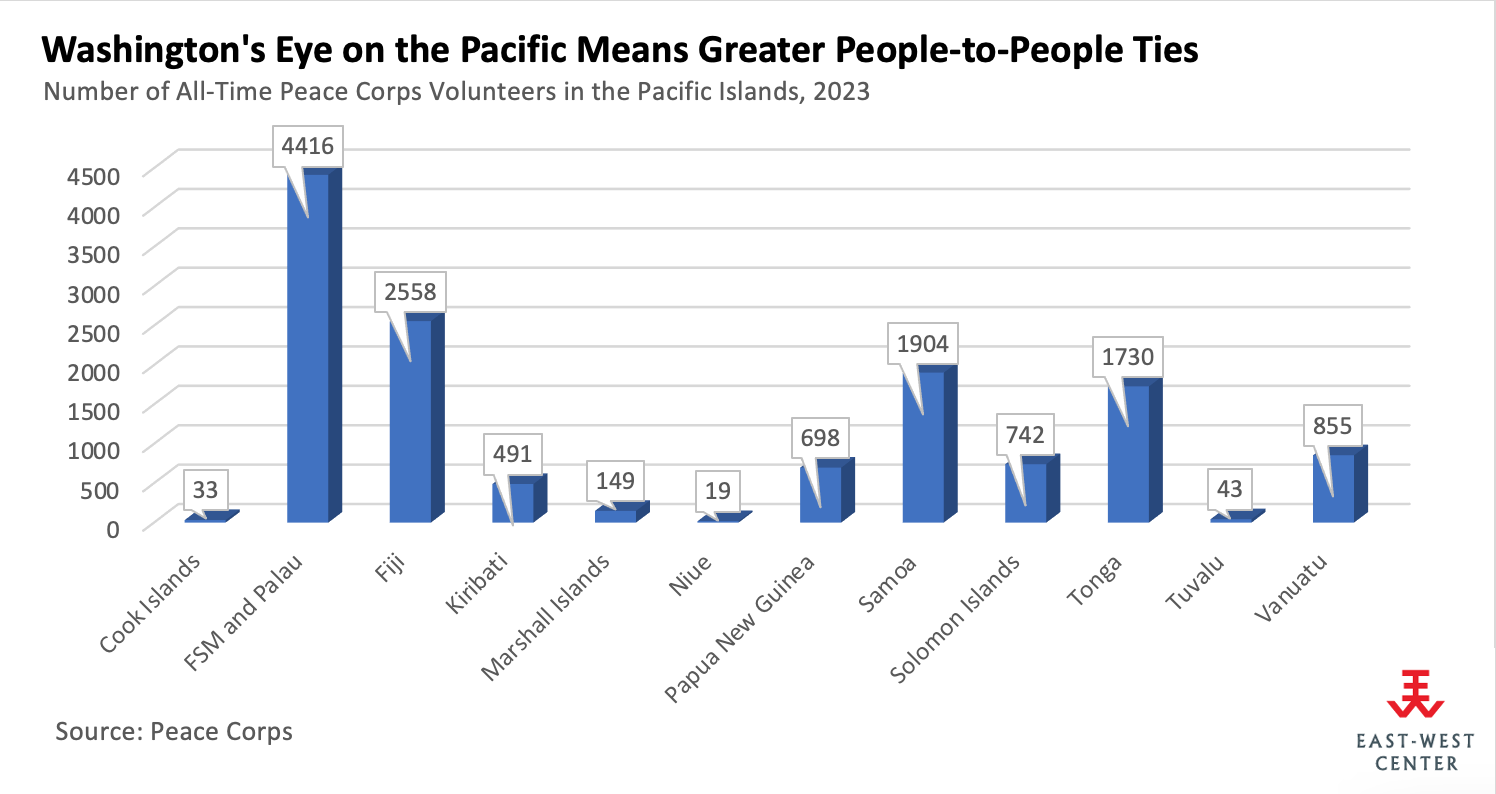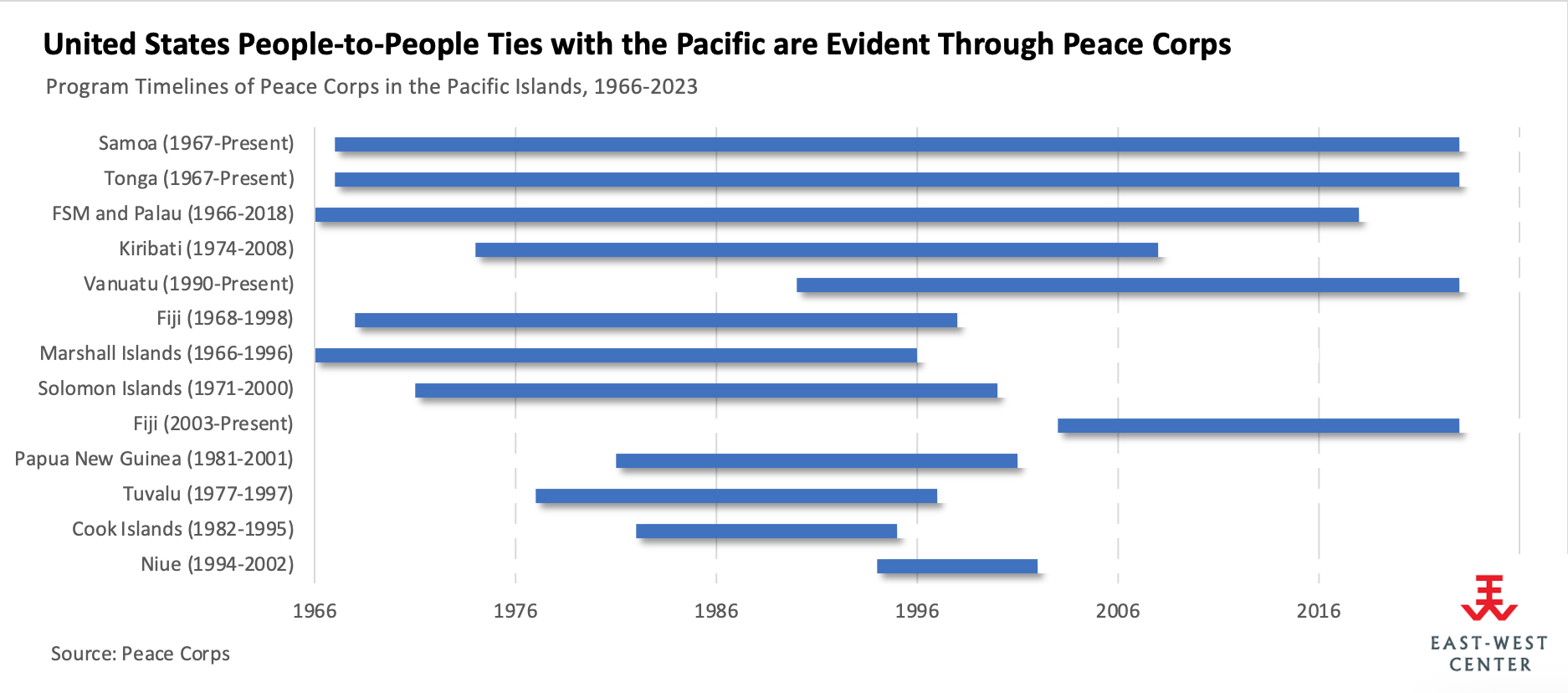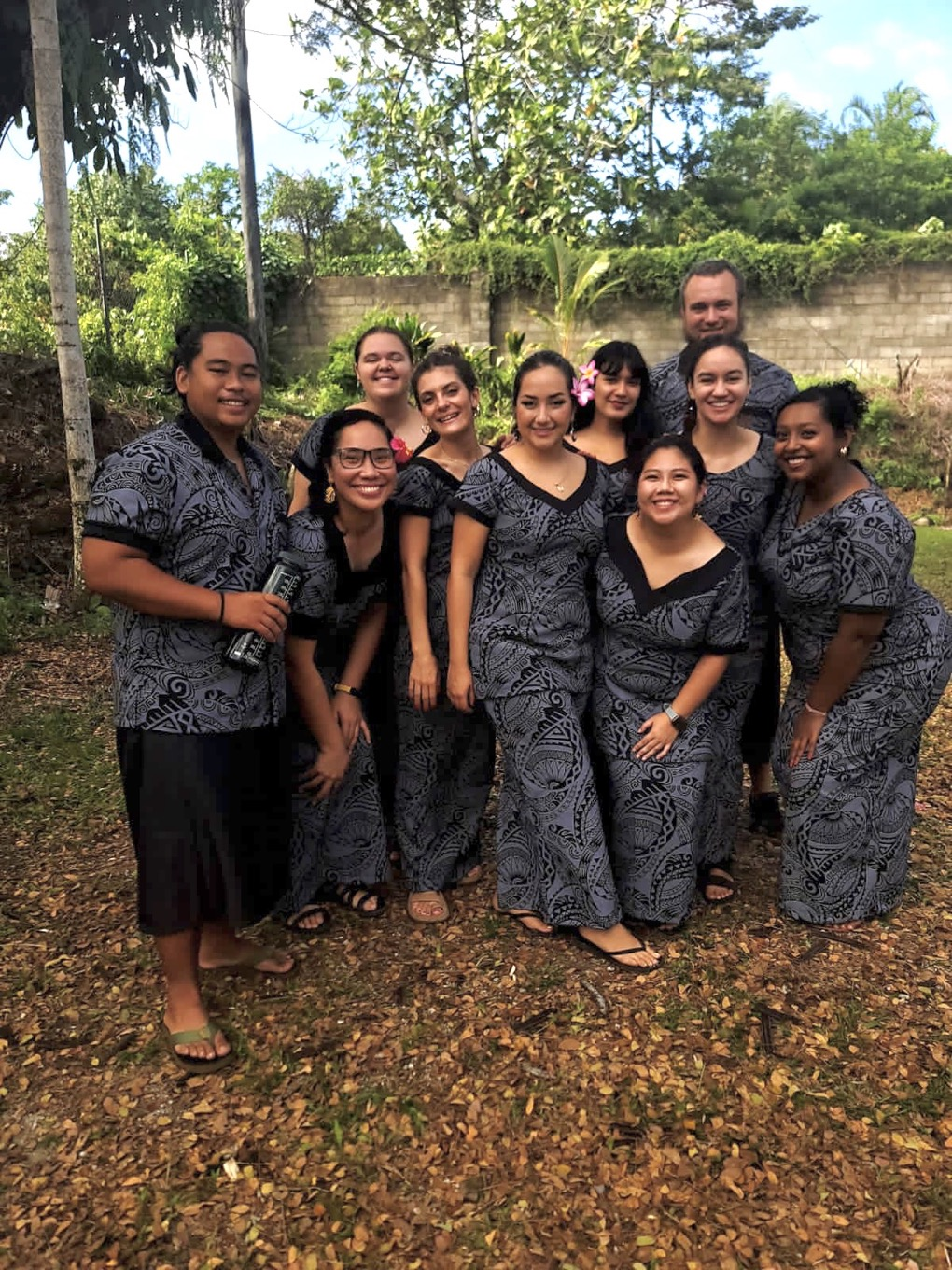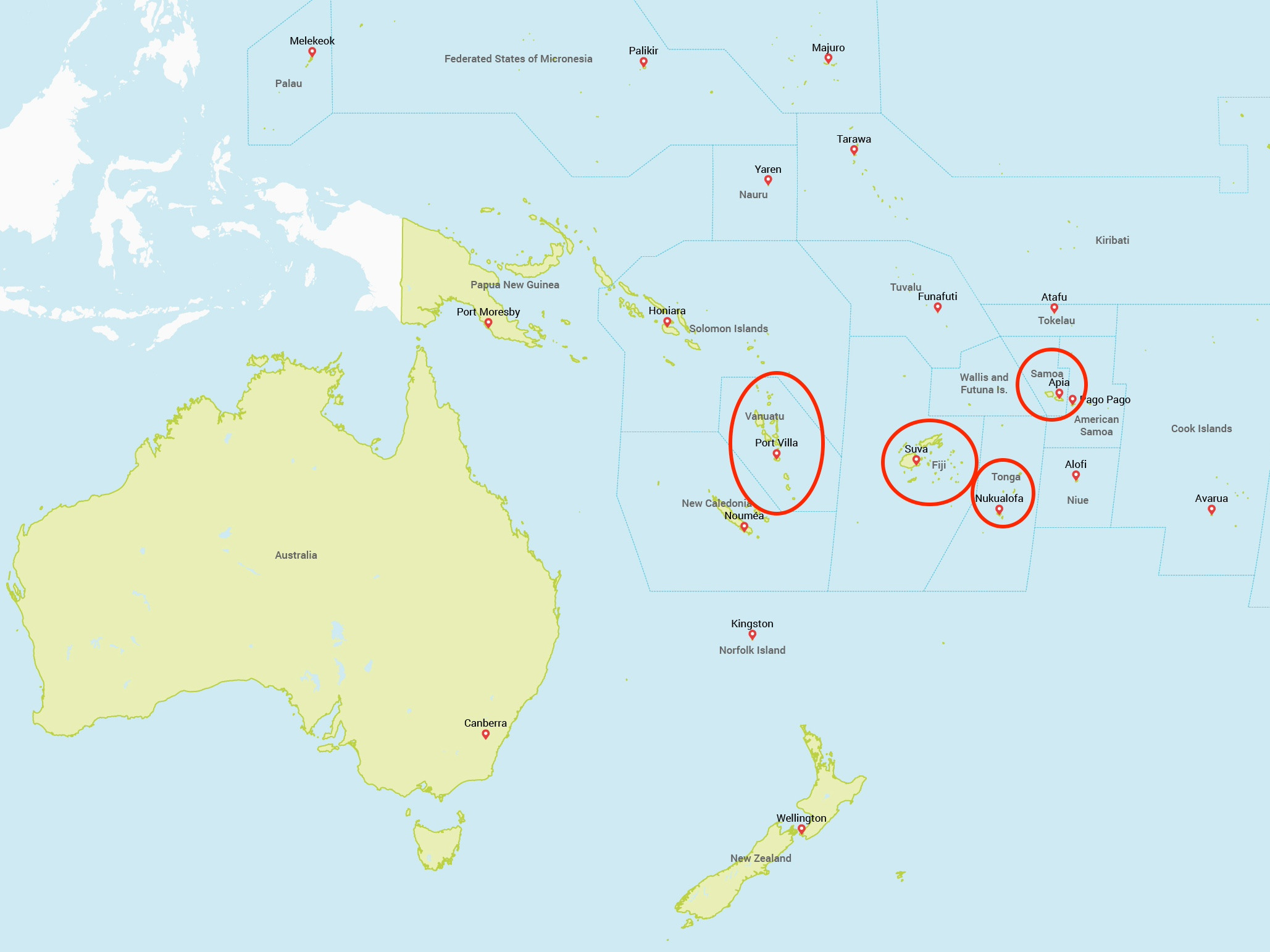Following eased COVID-19 restrictions and Washington’s renewed interest in the Pacific Islands, the Peace Corps program continues to revive formerly paused volunteer posts across the region.
The recent US-Pacific Islands Forum Summit in September 2023 announced newfound and continued partnerships with Pacific Islands nations across multiple sectors, including the ongoing return of Peace Corps volunteers and a partnered youth leaders initiative to the region.
The Peace Corps’ revival following the COVID-19 pandemic represents one of the numerous federal initiatives announced to enhance people-to-people ties, both with the Pacific Islands and their diaspora communities in the United States. Other initiatives include increased sister city partnerships, academic and work exchange opportunities, and the designation of Hawai'i as the host of the 13th Festival of Pacific Arts and Culture in 2024 – the first festival to be held in the United States.
Following volunteer evacuations from Pacific Islands-based posts in March 2020, the Peace Corps has already returned to Fiji, Samoa, and Tonga in projects spanning across health, education, and community economic development. Volunteers predominately support projects in line with the region’s increased efforts to combat climate change (e.g., disaster response training, environmental education) and the lack of existing youth-centered initiatives (e.g., community adaptation projects, empowerment through sports programming, etc.).
Peace Corps’ establishment in the Pacific Islands dates back to 1966, when the United States first partnered with the now Freely Associated States (FAS): the Federated States of Micronesia, Palau, and the Marshall Islands. Over 13,000 volunteers have served in 12 different Pacific Island nations as of 2023, with 44 volunteers currently serving in three nations.


“Peace Corps is very respected here. It is a point of pride for a village to host a volunteer,” Lazaro, a current volunteer serving in Samoa, said in an interview about his Peace Corps experience in the Pacific. “In Samoa, there is not one person who was not taught by a Peace Corps volunteer, lived with a Peace Corps volunteer, or interacted with a Peace Corps volunteer.”

Lazaro works both as an English literacy educator and a librarian for a local school. “Whatever we do is community inspired and community driven. We ask what is needed and then we use our experience to advise, but not dictate, what happens.” Outside of school, Lazaro integrates with the community through assisting in cooking meals and doing chores with his host family, and attending Sunday church services.
Samoa was the first Pacific Island nation to resume Peace Corps operations in January 2023, following a three-year hiatus caused by the pandemic. Vanuatu – whose first volunteer cohort will arrive in 2024 – will revive their education and health projects alongside the Biden administration’s recently announced “Blue Pacific Youth Initiative”, created in partnership with the US Agency for International Development (USAID).

The initiative aims to develop Pacific youth leadership in cooperation with Peace Corps volunteers, focusing on climate change resilience in local communities. By leveraging local, national, and regional connections in the region, the Peace Corps hopes to foster a new generation of Pacific youth leaders prepared to tackle current and future climate change projects.
USAID, in conjunction with the Peace Corps and other local partners, has continued to fund Pacific Islands projects on behalf of the United States. Peace Corps Tonga will pilot the Blue Pacific Youth Initiative through a climate-specific project, utilizing $400,000 in funding from USAID. PROJECT Governance – a program strengthening democratic institutions in the Pacific Islands – represents another regional program funded by USAID back in 2021. A past Peace Corps Vanuatu volunteer also successfully secured a USAID grant in 2017 to support solar-powered lighting for his school community.
The Peace Corps stands as a trademark US government initiative to foster greater people-to-people ties between American citizens and the Pacific Islands. Compared to last year’s US-Pacific Islands Summit, the Biden administration announced a much greater breadth of people-to-people and other specific initiatives at this year’s summit to enhance the US-Pacific partnership – including the revival of a Peace Corps presence and additional funding.
However, maintaining the Peace Corps in the Pacific requires significantly more financial, operational, and infrastructural support compared to other regions. Past Peace Corps programs in the region, such as Peace Corps Federated States of Micronesia (FSM) and the Republic of Palau, have cited difficulties in meeting this support given the islands’ “vast geographical distances, medical care and transportation [challenges], and recurring staff vacancies.”
The growing strategic importance of the Pacific Islands for the United States has ushered in Congressional support for Peace Corps’ revival – particularly in the FAS (i.e., the FSM, Palau, and the Marshall Islands). The unique Compacts of Free Association agreement, comprised of the FAS and the United States, allows for a US military presence on FAS territory amidst rising US-China tensions in the region. The Biden administration’s official recognition of Cook Islands and Niue in September – both of which have hosted a limited number of Peace Corps volunteers – could also signify Washington’s desire to increase regional presence through public diplomacy.
The Peace Corps will now continue as the United States’ trademark public diplomacy program in the Pacific Islands, supporting education and health projects with emphases on climate change resiliency and youth development. Climate change in the Pacific specifically has reportedly been overlooked in recent years, despite being a major variable aggravating tensions between the United States and China. An increased Peace Corps or other public diplomacy presence not only represents enhanced people-to-people ties in the Pacific, but also foreshadows Washington’s national security strategy in the region.
Declan Mazur is a participant in the Young Professionals Program at the East-West Center in Washington, DC. He holds a bachelors in Global China Studies from New York University Shanghai with a concentration in Political Science.
Juan San Nicolas is a participant in the Young Professionals Program at the East-West Center in Washington, D.C. He is a current graduate student at Georgetown University, concentrating in Science, Technology, and International Affairs.